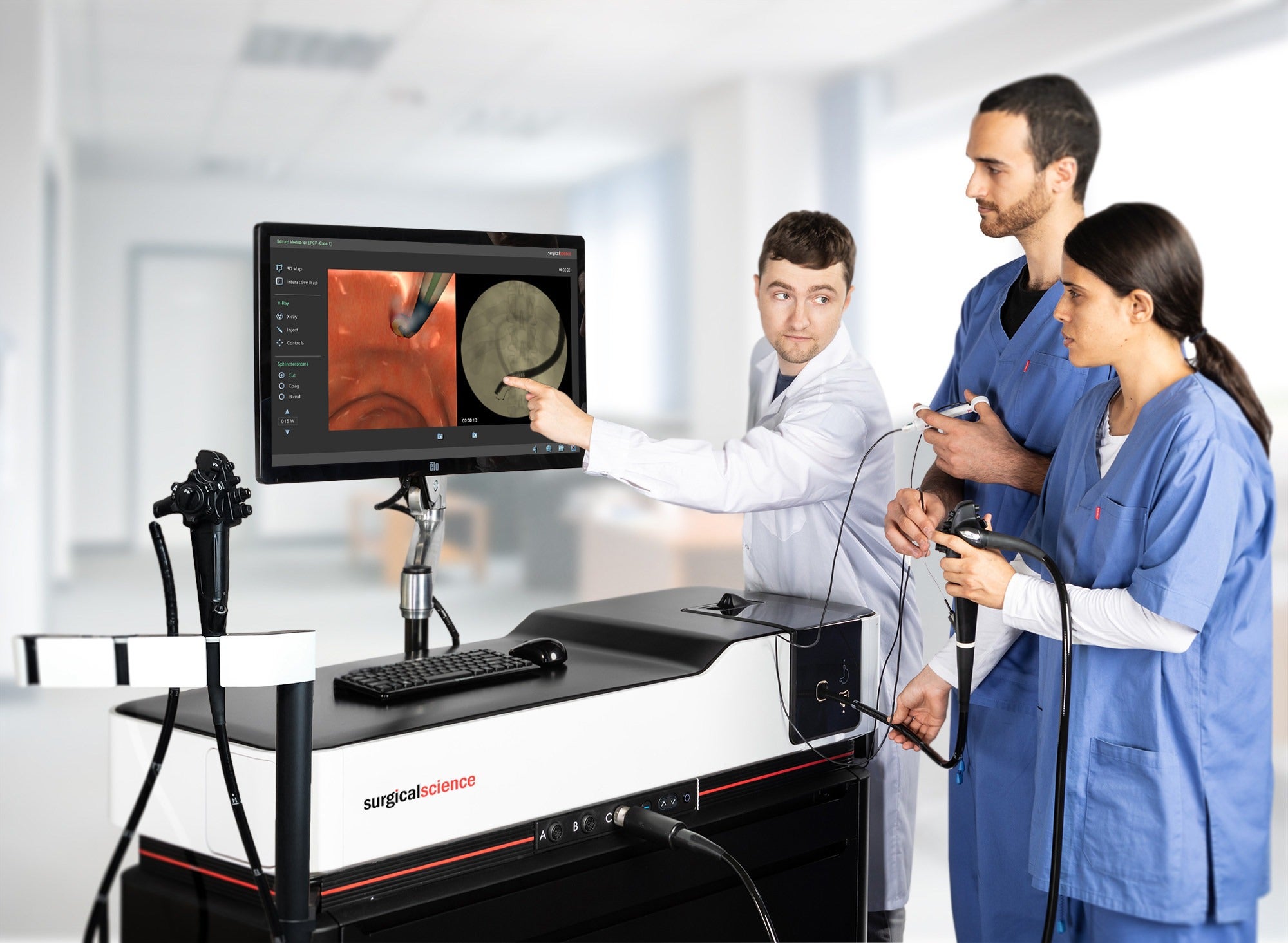
The American Society for Gastrointestinal Endoscopy (ASGE) has partnered with Surgical Science, a Swedish manufacturer of virtual reality simulators, to develop new gastrointestinal endoscopy (GI) simulation-based training and curricula for GI fellows and endoscopists.
The collaboration will initially focus on advancing learning through simulated experiences in endoscopic ultrasound (EUS) and endoscopic retrograde cholangiopancreatography (ERCP).
It will help develop new educational content, simulator learning modules, assessment metrics, and validation of training to ensure safe and effective adoption.
ASGE president Bret Petersen said: “The use of GI simulation needs to further evolve, particularly to aid in the standardised attainment of complex procedure skills such as for ERCP and EUS, as they require a high level of technical, cognitive, and non-technical competence.
“ASGE is pleased to partner with Surgical Science to add simulation-based training to our portfolio of educational offerings for all segments of our membership.”
ASGE chief executive officer Donald Palmisano Jr. said: “We are appreciative of Surgical Science’s support and commitment to the training and education of GI endoscopists and look forward to working with them on this project, and eventually expanding to other areas.”
Surgical Science manufactures virtual reality simulators that train surgeons and other medical specialists to help improve their psychomotor skills and instrument handling.
In addition to its own products, the company works with simulation solutions for medical technology companies that develop surgical instruments for clinical use.
Surgical Science-Simbionix simulators are currently being used in training centres worldwide.
ASGE will use the Simbionix GI Mentor simulator at its IT&T Centre in Downers Grove, Illinois, for training and education, and form the basis of the ASGE curricula.
Surgical Science president Ran Bronstein said: “The next step of surgical simulation and its utilisation, as we see it, lies in procedural training and assessment for the more complex diagnostic and therapeutic interventions in each clinical field.
“We look forward to jointly bringing closer the day when high fidelity simulation, with its inherent repeatability and objective assessment, is administered in a manner that allows novice and experts alike to attain and demonstrate procedural proficiency prior to treating patients.”






